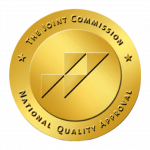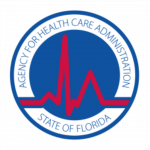In the United States, there is a countless amount of people with an addiction to drugs or alcohol . Addiction is a disease that can be controlled but not cured. Rehab, 12-step programs, or staying away from drugs and alcohol are ways to help control addiction. There are over 20 million Americans who suffer from addiction. Sadly, about 2 million die because of the conditions of their drug addictions each year.
Questions remain about whether addiction is a disease or not. Are there different types or is it like having diabetes? Hereditary, conditioned? Is everyone who has substance abuse problems an addict? Is over-eating an addiction? Will talking to someone help stop drug abuse if one does have an addictive disorder?
Defining the Disease of Addiction
Addiction is a chronic relapsing brain disease that causes compulsive substance abuse. The National Institute on Drug Abuse (NIDA) has spent over $1.6 billion since 1974 to investigate the causes of addiction. As well as the effectiveness of treatments. Drugs affect the part of the brain called the reward center. Think of it as a car’s gas tank with its needle stuck on Empty. An addict has a strong desire for a drug even ten years after last having used it.
What Causes Addiction?
Scientists believe that addiction is a result of a cascade of events over time. It is not the drug or alcohol that are the cause, or even for that matter the brain circuits. The process can best be described as an adaptation in response to a strong negative reinforcing stimulus.” [1] This means that the brain gets “addicted” to drugs and becomes dependent on them. Scientists have discovered the three stages of building an addiction.
First, there are withdrawal symptoms when a person tries to break their dependencies. Second, there is tolerance which occurs when dependency grows. This describes a subjects’ reduced reaction to a drug following its repeated use. Third, there is the progression to it when a person finds that they have shifted from having moderate drug use to abusing it.
Addiction Treatments That Work
The fact that addiction is a brain disease helps to understand why people need medication in the first place. Further explaining that most cannot simply resist. They are in a distinct mental state. Since it is a complex biobehavioral condition, whose production and presentation are strongly influenced by social experience, treatment may include a wide range of components.
The signs of this brain disease extend beyond merely abusing a large number of medications. It has a wide range of physical, mental, and social effects that impact one’s ability to participate in almost every aspect of life. As a result, the goal of treatment cannot only be to reduce opioid use; it must also include returning the person to full functioning in the household, at work, and in society. For these causes, the best interventions combine medications, behavioral therapy, and adequate psychosocial care, as applicable to the patient.
Understanding the bio-behavioral complexity of addiction aids in the development of techniques for dealing with addicted criminal offenders. The fact that they have this brain disease explains why chronic addictive offenders have such elevated post-incarceration recidivism rates for both substance usage and crime. Numerous findings have found that treating addicted inmates, when under juvenile justice supervision, significantly decreases later crime and substance use. The conclusion is self-evident, and these results are fueling a nationwide pattern in combining public health and public safety policies when coping with addicted offenders. There are several examples, such as referrals to rehab centers, drug courts, and prison-based recovery programs.
A crucial role to play
Since addiction is a quintessential biobehavioral disease, psychiatrists play a crucial role in both increasing learning and treating addiction. Furthermore, since psychiatrists are uniquely capable of seeing mind/body interactions with all of their complexities, they are well-positioned to help describe substance dependence and addiction to our larger population.
We’ve seen so before with brain diseases that manifest as behavior, such as schizophrenia and depression. Let’s do that all over again for addiction. The benefits to humanity would be enormous.














